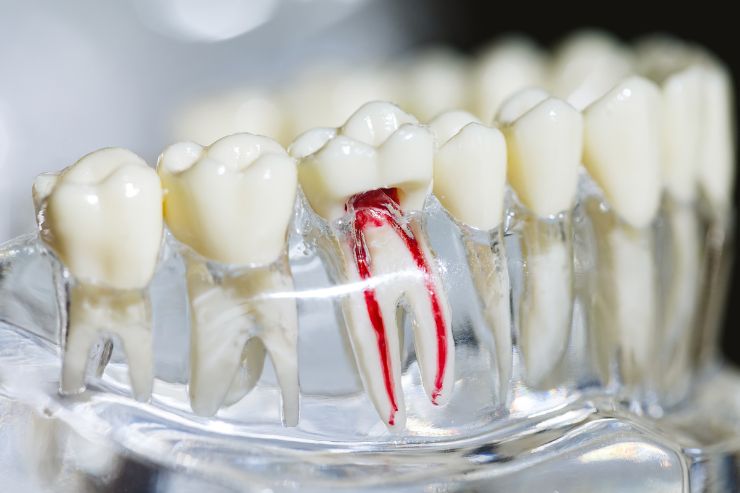
Root canal treatment, also known as endodontic therapy, is a dental procedure designed to treat infections or inflammation within the pulp of a tooth. At Dr. Akshata’s Clinic, we offer specialized root canal services aimed at preserving natural teeth and alleviating dental pain effectively.
Purpose and Benefits:
Root canal treatment becomes necessary when the pulp, the soft tissue inside the tooth that contains nerves, blood vessels, and connective tissue, becomes infected or inflamed. This can occur due to deep decay, repeated dental procedures on the tooth, cracks or chips in the tooth, or trauma to the face. The main goals of root canal therapy include:
Removing Infection: The procedure involves cleaning out the infected or inflamed pulp and disinfecting the root canal system to remove bacteria and prevent further spread of infection.
Preserving Natural Teeth: Rather than extracting the tooth, root canal treatment allows us to save the natural tooth structure, maintaining chewing efficiency and preventing the need for more extensive dental work.
Alleviating Pain: Root canal therapy is often performed to relieve severe tooth pain caused by infection or inflammation. Once the infected tissue is removed, patients typically experience relief from discomfort.
Protecting Against Tooth Loss: By preserving the tooth through root canal treatment and placing a crown over the treated tooth, we can strengthen it and protect it from future damage or fracture.
Procedure: The root canal procedure generally involves several steps:
Diagnosis: Our dentist will examine the tooth and may take X-rays to assess the extent of the infection and determine if root canal therapy is necessary.
Anesthesia: Local anesthesia is administered to numb the affected tooth and surrounding area, ensuring a comfortable experience during treatment.
Access and Cleaning: An access hole is created in the tooth to reach the pulp chamber. The infected or inflamed pulp tissue is carefully removed, and the root canals are cleaned and shaped using specialized instruments.
Filling and Sealing: After cleaning, the root canals are filled with a biocompatible material called gutta-percha to seal them and prevent recontamination. The access hole is then sealed with a temporary or permanent filling.
Restoration: In most cases, a dental crown is placed over the treated tooth to restore its strength, function, and appearance. This final step protects the tooth and allows for normal chewing and biting.